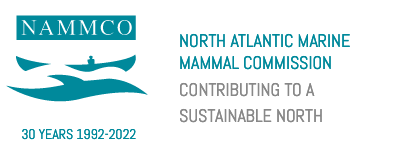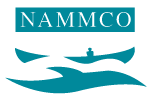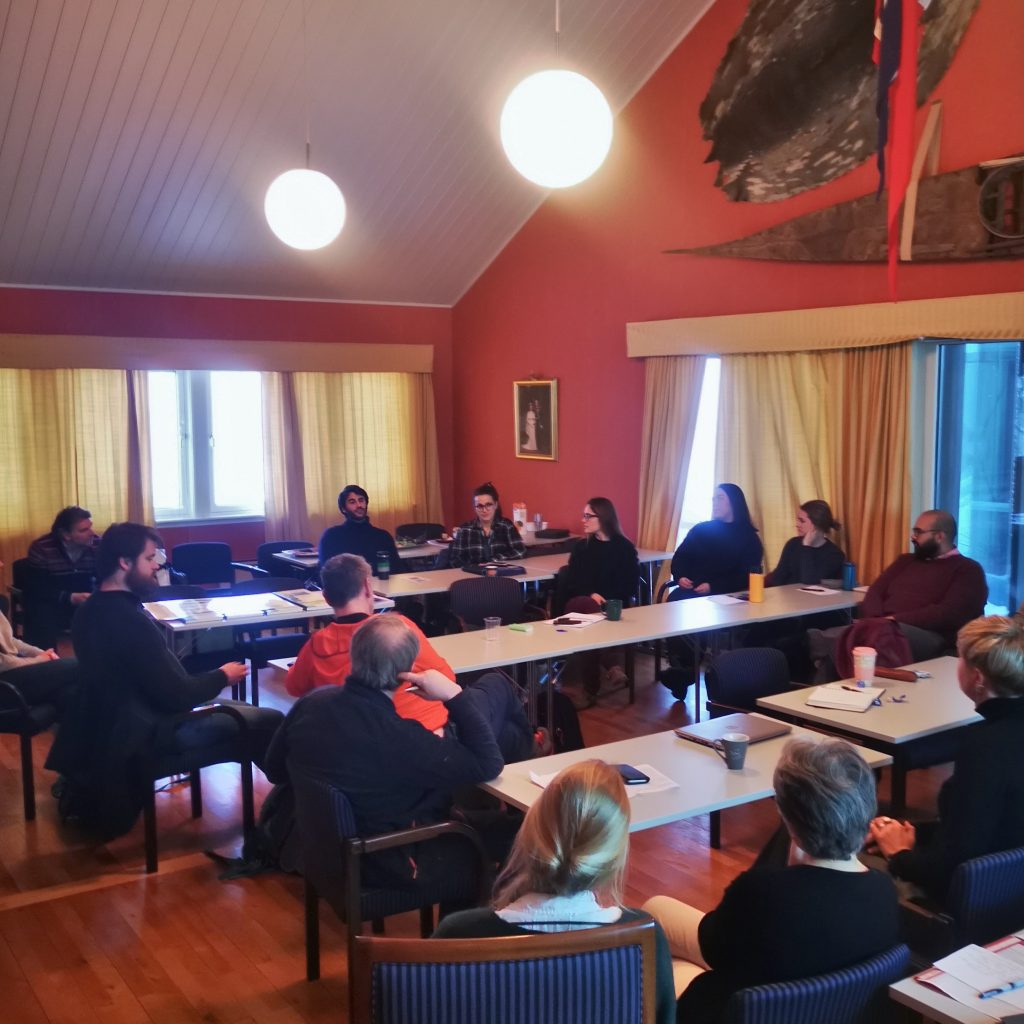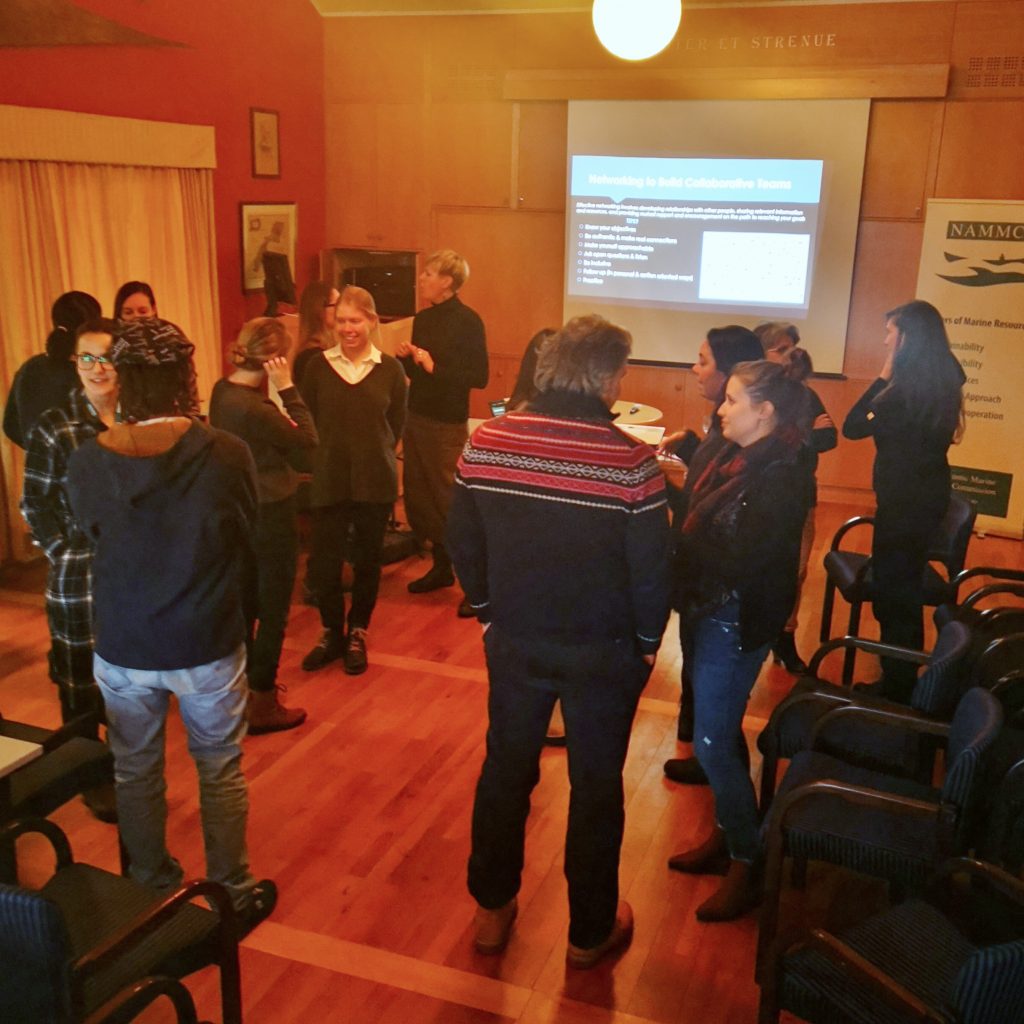Blog: Marine Mammal Student Symposium
Following the success of last year’s student symposium, NAMMCO, in association with the University of Tromsø, hosted a second marine mammal student symposium on the theme: “Making a difference, as a scientist, in a changing Arctic”. The symposium was held on Wednesday the 5th of February 2020 and was specifically for students working with marine mammals.
The symposium began with presentations from students at various Norwegian biological research institutes, as well as the Norwegian Centre for Law of the Sea. The presentations covered a range of topics. This included: using genetics to monitor killer and humpback whales, the impact of herring spawning events on killer whale behaviour, automated detection of feeding lunges in humpback whales, the use of photo-identification of humpback whales in the Barents Sea and the Troms area, feeding ecology of harbour porpoises based on stomach contents and stable isotopes, challenges in creating comprehensive international legislative regimes on noise pollution and particularly seismic air-gun surveys. A talk was also given on visiting species in the NAMMCO area.
Following the student presentations was a talk from NAMMCO’s General Secretary on the “Challenges and opportunities facing science for policy in a changing Arctic”. This presentation emphasized the need for cooperation, sharing of data and field opportunities, and enhanced interdisciplinarity.
This presentation was followed by an interactive session for the students facilitated by NAMMCO’s Scientific Secretary. The aim of this session was to help them build the skills necessary for achieving enhanced cooperation and interdisciplinarity and make a difference as a scientist in a changing Arctic. Interactive exercises were run on the topics of effective communication, networking and having difficult conversations.
In these sessions that combined plenary discussions and partner exercises, students were invited to share knowledge and experiences, as well as tips, tricks and tools for communicating their science to different audiences and how to network effectively. Through these conversations and practical exercises, the students experienced the importance of, and had an opportunity to practice, effective communication in situations like having a conversation with someone you disagree with, giving an elevator pitch or breaking the ice at a networking event.
In the afternoon, invited speakers presented three fascinating topics relevant to working in a changing Arctic. Dr. Vito De Lucia, Associate Professor at the Norwegian Centre for the Law of the Sea spoke about the status of the new global agreement on Biodiversity Beyond National Jurisdiction or BBNJ for short. Dr. Sofia Aniceto, VISTA postdoc. at the Norwegian College of Fishery Science department presented the benefits of unmanned vehicles used for research and/or monitoring of marine species, both in the air and the sea. Prof. Kim Præbel, from the Norwegian College of Fishery Science and leader of the genetics research group invited the participants into the world of environmental DNA (eDNA), which can be used to reveal the presence of different species in an area without visual confirmation. In addition, Prof. Præbel shared his academic journey and emphasized the need for collaboration when conducting science. These inspiring talks captured the complexity of performing research in the Arctic and the Northern European Seas, as well as gave the participants a glimpse of the evolving technologies that can be used to face the challenges in marine mammal science, conservation and management.
The symposium attracted around 30 people of various academic backgrounds and nationalities, including Dutch, American, Portuguese, Italian, Danish, Swedish, German, French, Mongolian, Brazilian, Faroese and of course Norwegian. Amazing how all these people, living in Tromsø and Trondheim, somehow ended up in the same room, on yet another snowy day in Tromsø! All bound by the common purpose of discussing and sharing knowledge on marine mammals and ecosystems, as well as strengthening their network within the field.
We’d like to once again thank the students, our guest speakers, and all attending throughout the day. A special thanks goes to Maren Andrea Pedersen and Camille Saint-André, from the Institute of Marine Research and UiT, for co-organizing this year’s symposium with us, and of course Lars Folkow and the Department for Arctic Biology for housing the event.
Sabine
Intern at NAMMCO




